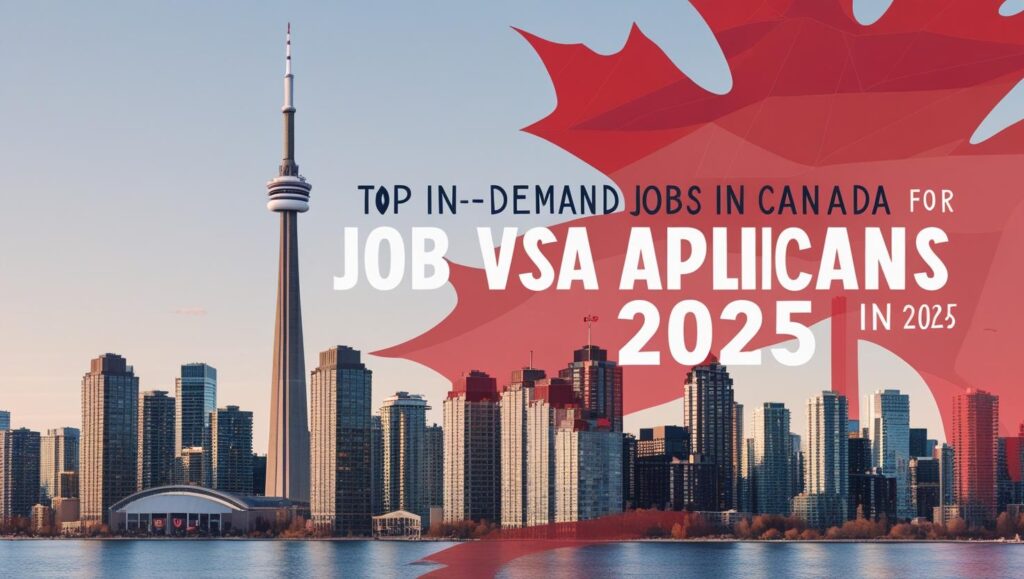Finding a job in Canada as a newcomer in 2025 can feel overwhelming. The Canadian job market is competitive, and government websites often explain things in complex terms without real-life clarity. That’s why this guide is here: to break it down into simple steps, practical tips, and insider advice—so you can land a Canadian job faster.
Whether you’re moving to Canada as a skilled worker, an international student, or simply exploring opportunities, this step-by-step guide will give you everything you need to succeed—from preparing your resume to avoiding the mistakes that cost applicants interviews.
Why This Guide Matters
Canada plans to welcome over 485,000 new immigrants in 2025 under its Immigration Levels Plan. Most newcomers need a stable job to qualify for permanent residency and to build their life in Canada.
But here’s the truth: Canadian employers hire differently than in many other countries. If you apply with the wrong type of resume, don’t know how to use job portals, or skip networking—you could end up waiting months with no response.
This guide shows you exactly how to get a job in Canada step by step, plus mistakes to avoid.
Step 1: Understand Canada’s Job Market in 2025
Before applying, research which jobs are in demand. Canada has labour shortages in several sectors:
-
Healthcare: Nurses, doctors, caregivers, pharmacists
-
Technology: Software engineers, IT analysts, cybersecurity specialists
-
Trades: Electricians, welders, mechanics
-
Logistics: Truck drivers, warehouse workers
-
Hospitality: Chefs, hotel staff, cleaners
👉 Use the official Government of Canada Job Bank (jobbank.gc.ca) to see current openings, salary ranges, and regional demand.
Pro Tip: Don’t just look at national demand. Each province has its own shortages. For example, Alberta needs truck drivers, while Ontario has huge demand in IT.
Step 2: Create a Canadian-Style Resume and Cover Letter
Canadian resumes are different from resumes in Asia, the Middle East, or Europe.
Key Differences:
-
✅ No photos, age, or marital status (Canadian employers find this unprofessional).
-
✅ Focus on skills and accomplishments, not just job duties.
-
✅ Use 1-2 pages max (unless you’re in academia).
-
✅ Tailor each resume to the job posting.
Cover Letter Tips:
-
Write 3–4 short paragraphs.
-
Show why you’re a good fit for that specific company.
-
Keep it professional, not too formal.
Step 3: Apply on Canadian Job Portals
Here are the top job portals for newcomers in 2025:
| Job Portal | Best For | Notes |
|---|---|---|
| Job Bank | All industries | Official government portal |
| Indeed Canada | General jobs | Most popular, free |
| Professional networking | Employers often check your profile | |
| Workopolis | Skilled jobs | Strong for IT and business |
| Glassdoor | Salary insights | Great for company reviews |
Pro Tip: Don’t just apply online. Reach out to recruiters and hiring managers directly on LinkedIn—this doubles your chances of getting noticed.
Step 4: Network Effectively in Canada
In Canada, networking is often more important than applying online. Around 65% of jobs are filled through hidden networks.
Ways to network:
-
Join LinkedIn groups related to your field.
-
Attend Canadian career fairs (virtual & in-person).
-
Connect with alumni from your university.
-
Volunteer or take short internships—it opens doors to full-time roles.
Step 5: Check Work Permits and Eligibility
Even if you find a job offer, you need to make sure you’re legally allowed to work.
-
International Students: Can work 20–40 hours/week (depending on study program rules).
-
Temporary Foreign Workers: Need a valid work permit + LMIA (Labour Market Impact Assessment).
-
Permanent Residents: Can work freely in any province.
👉 See full details on the official IRCC Work in Canada page.
Step 6: Prepare for Canadian Job Interviews
Canadian interviews usually test both technical skills and cultural fit.
Common Questions:
-
“Tell me about yourself.”
-
“Why do you want to work here?”
-
“Describe a challenge you faced and how you solved it.”
-
“What do you know about our company?”
Tips:
-
Be honest but confident.
-
Research the company’s website before the interview.
-
Follow up with a polite thank-you email afterward.
Step 7: Understand Salaries and Cost of Living
Don’t accept the first offer blindly. Research salaries by province:
-
Toronto & Vancouver: High salaries but high rent.
-
Calgary & Edmonton: Lower rent, competitive wages.
-
Atlantic Canada: Lower salaries but affordable lifestyle.
👉 Use Glassdoor or Job Bank’s wage report to check fair pay.
Step 8: Avoid Common Mistakes
❌ Sending the same resume everywhere.
❌ Not customizing cover letters.
❌ Ignoring LinkedIn (Canadian employers often check it).
❌ Forgetting to mention soft skills (teamwork, communication).
❌ Relying only on online applications instead of networking.
Step 9: Extra Tips for Faster Success
-
Take a short online Canadian certification (e.g., project management, IT, healthcare).
-
Improve your English or French through free community programs.
-
Register with settlement agencies that connect newcomers to employers.
-
Apply for provincial nominee programs (PNPs)—many provinces prioritize applicants with a job offer.
FAQs – How to Get a Job in Canada 2025
1. Do I need a job offer to move to Canada?
Not always. Programs like Express Entry don’t require it, but having one increases your chances.
2. How long does it take to find a job in Canada?
On average, 2–6 months for newcomers, depending on your field and location.
3. Can I apply for jobs from outside Canada?
Yes, but employers prefer candidates already in Canada. Use LinkedIn and Job Bank to apply abroad.
4. Are there free resources for newcomers?
Yes—settlement agencies offer resume help, interview practice, and job fairs.
5. Which province is easiest to find a job in 2025?
Ontario (IT & healthcare), Alberta (trades & transport), and British Columbia (hospitality & tech).
Final Thoughts
Getting a job in Canada in 2025 is absolutely possible if you follow the right steps:
-
Research in-demand jobs
-
Write a Canadian-style resume
-
Apply smartly on job portals
-
Network and build connections
-
Prepare for interviews
Remember: Persistence is key. Most newcomers face rejections before getting hired, but with the right strategy, you’ll land your first Canadian job.
👉 Want to learn more? Check out our other guides on Canadian work permits and Express Entry pathways.



